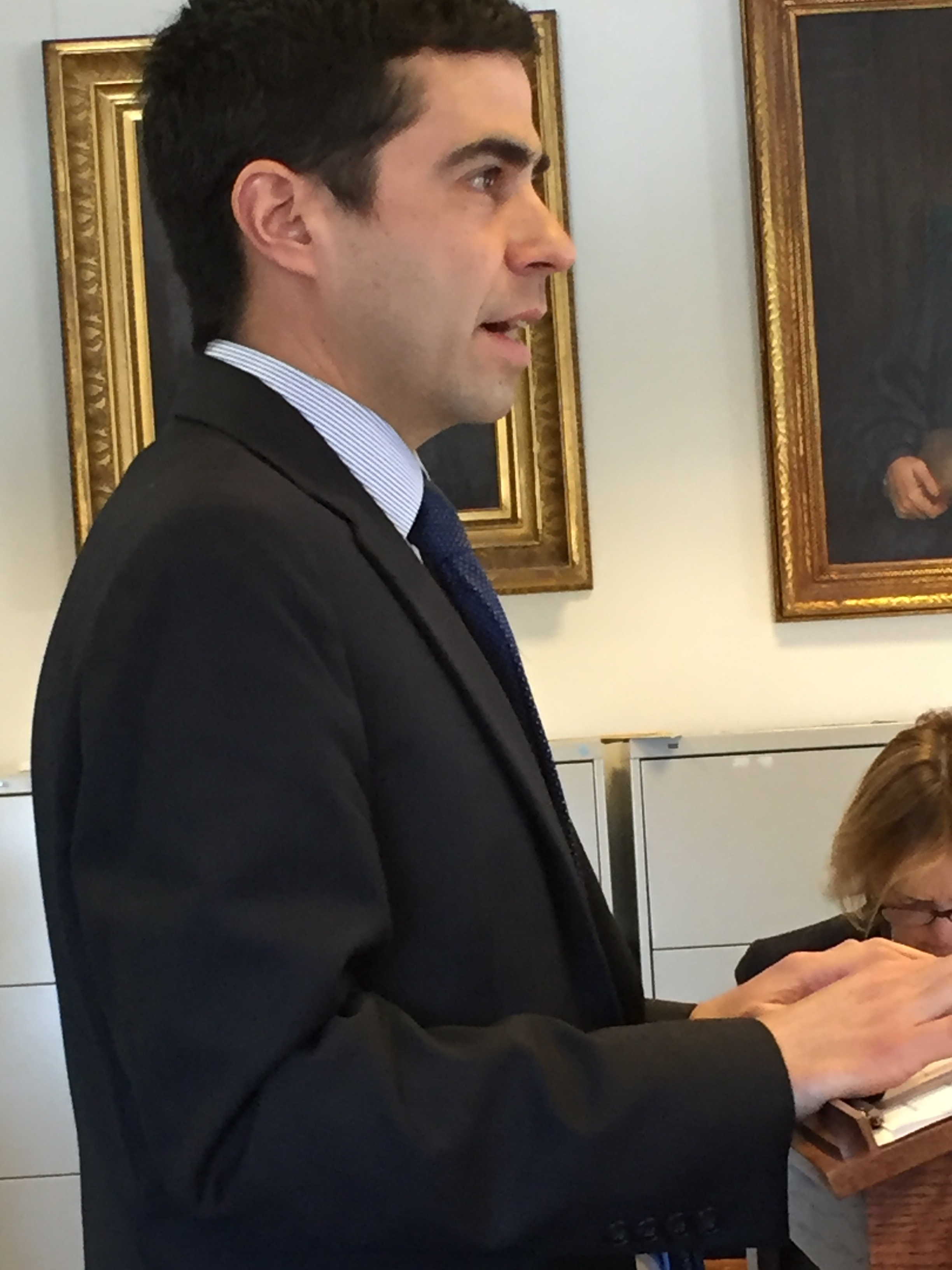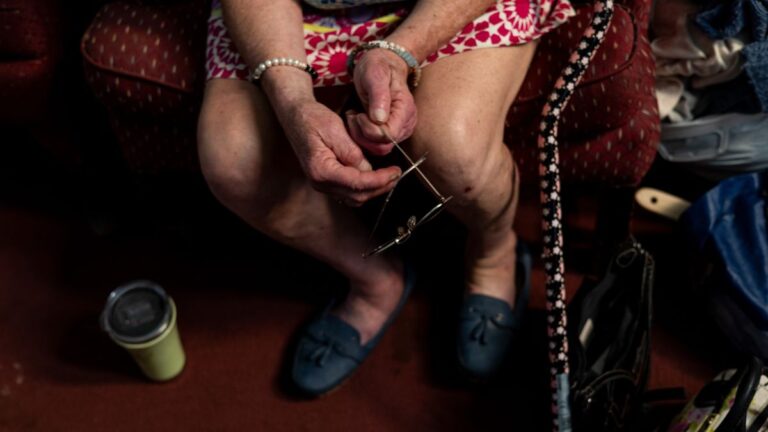Saying he wanted to stop a practice that was “the closest thing to getting directly paid” by lobbyists, state Rep. Louis Luchini, D-Ellsworth, introduced a bill Monday to bar legislators from paying themselves, businesses they run and family members from political action committees (PACs) that they control.
“I don’t feel that it’s appropriate for legislators to be able to pay themselves from their PACs,” said Luchini, who called his bill a “common-sense” response to the practice. Luchini is the Democratic co-chairman of the legislature’s Committee on Veterans and Legal Affairs, which held a public hearing on the bill Monday.

PACs are organizations that spend money to influence elections and campaigns. Legislators raise money, much of it from lobbyists, for PACs that they run. There are no limits on contributions to those PACs, nor are there rules that limit how the money may be spent.
In 2014 and 2016, the Maine Center for Public Interest Reporting revealed that two Democratic legislators, Sanford Sen. John Tuttle and Portland Rep. Diane Russell, had paid themselves out of money contributed to their PACs.
Tuttle used his PAC, whose purpose was to help other Democratic candidates run for office, to instead buy tires, pay for car repairs, reimburse himself for travel and pay his wife and daughter for computer services and keeping his books. Much of the money in the John Tuttle For Leadership PAC came from lobbyists and special interests, including the liquor and gambling industries; the committee chaired by Tuttle had jurisdiction over liquor sales, gambling, election laws, campaign practices and campaign financing.
The mission of Russell’s PAC was to “help support Democrats in winning seats in the Maine House.” Yet it paid her almost 20 percent of its total expenditures for “online organizing” and spent less than four percent of its payments to support candidates. Many of Russell’s contributions came from small donors across the United States.
Russell and Tuttle no longer serve in the legislature. Russell was defeated during the June 2016 Democratic primary, in which she competed against two other candidates for the Senate nomination from Portland. Tuttle lost his bid for reelection in 2014, ending a 28-year career in the legislature.
Luchini’s bill is the second in the past two years to attempt to close this legal loophole.
In response to the Tuttle story, the state Commission on Governmental Ethics and Elections Practices, known as the “Ethics Commission,” proposed legislation in 2015 to bar lawmakers from paying themselves from their PACs. The legislation stated that “if a Legislator has a principal role in a PAC that the PAC be prohibited from compensating the Legislator or a member of the Legislator’s immediate family or household for services provided to the PAC.”
The Ethics Commission legislation was embedded within a larger package of Ethics Commission law changes, passed with strong bipartisan support. But Gov. Paul LePage, a Republican, vetoed the bill in June 2015 and lawmakers were unable to override the veto.
The Ethics Commission had planned to resubmit the PAC reform measure again this year as part of another package of proposed changes to election and ethics laws. Luchini’s measure goes further than the Commission measure, by proposing that a PAC “may not make payments to or compensate a business owned or operated by the Legislator.”

Ethics Commission Executive Director Jonathan Wayne testified Monday that his agency would withdraw its proposal in light of Luchini’s legislation. But he warned that Luchini’s bill would not address every way that a lawmaker could benefit materially from the PAC he or she controlled.
“While this bill does regulate payments by the PAC to the legislator, it really doesn’t prohibit personal use of the PAC funds that are executed other ways. Under this bill, a PAC could go to a retail store and buy a really nice thing for the legislator, or the legislator’s family, or all sorts of personal things,” said Wayne.
“As long as the legislator is not reimbursed, it’s still allowed under this.”
In the case of Rep. Russell, her PAC’s expenditures between 2013 and 2015 included multiple payments to a coffee shop near her Munjoy Hill home for “coffee meeting(s).” Russell reported in state filings that the PAC also made three payments for a New York Times subscription, made 12 payments between July 2013 and Nov. 2014 to Virgin Mobile for “phone,” and spent $1,651.90 in June, 2013 at the Apple Store at the Maine Mall for “equipment.”
Wayne told the legislative committee members that the Luchini bill “really just says you can’t pay the legislator for their services, and certain reimbursements aren’t allowed, but there are still other personal uses that could be allowed.”
But Wayne stressed that personal use of PAC funds was rare.
“The honor system, the pressure of public transparency has worked pretty well in Maine,” he said.
The only other case of a legislator paying themselves from a PAC was revealed in 2012 in the Current Newspapers. They reported that then-state Sen. Cynthia Dill, D-Cape Elizabeth, had used her leadership PAC, the Dill Leadership Fund, to pay herself $4,000 to write a blog.
There were few questions from committee members at the public hearing Monday. Rep. Kathleen R. J. Dillingham, R-Oxford, asked Wayne whether, if a legislator had a family member “who works really well with graphics and computers and then they perform a social media campaign or design palm cards, this would prevent them from reimbursing them for that work.
“So this is saying, ‘Don’t go a way that could be possibly less expensive,’” said Dillingham.
“If you’re going to a family member, you’re going to them as a volunteer,” responded Wayne.
Andrew Bossie, executive director of the Maine Citizens for Clean Elections, testified in favor of the bill Monday, saying it would “ensure that nothing comes between our elected officials and their duty to their constituents.”
The bill faces further deliberation in a committee work session, which has not yet been scheduled.







